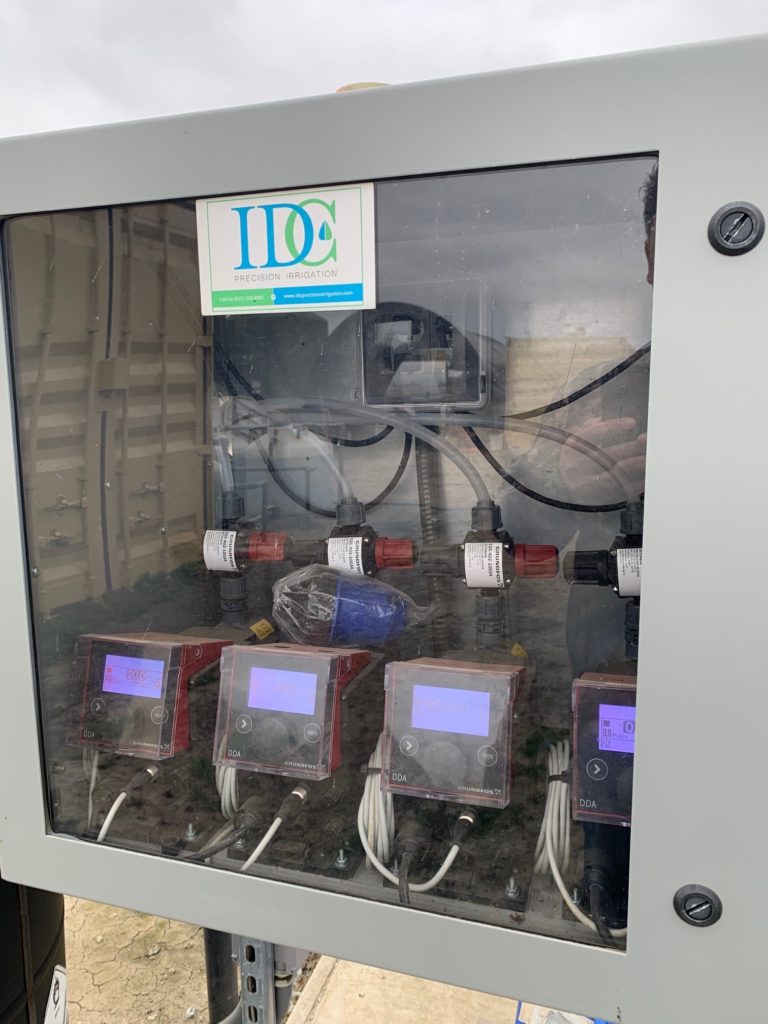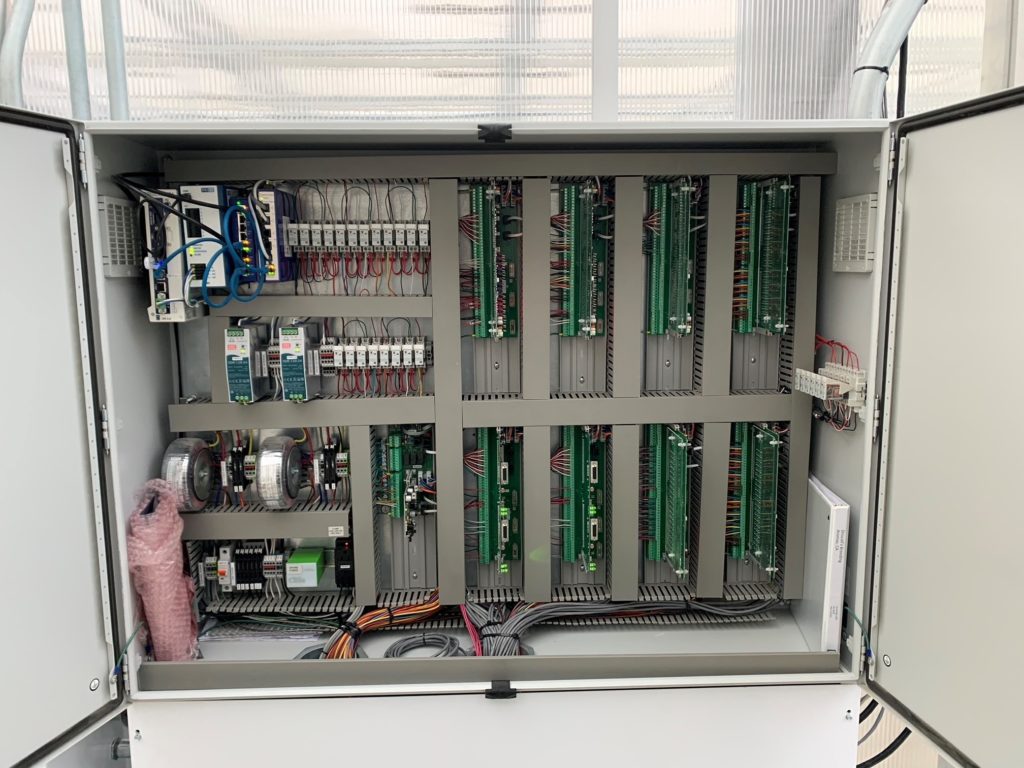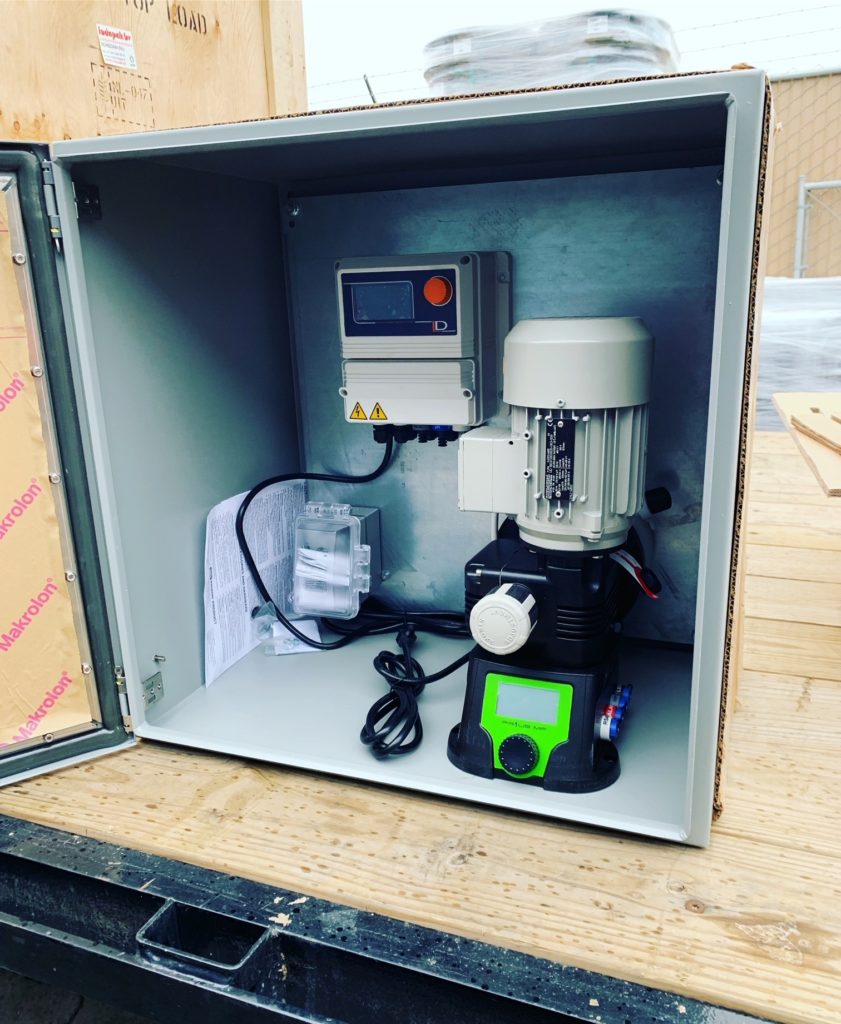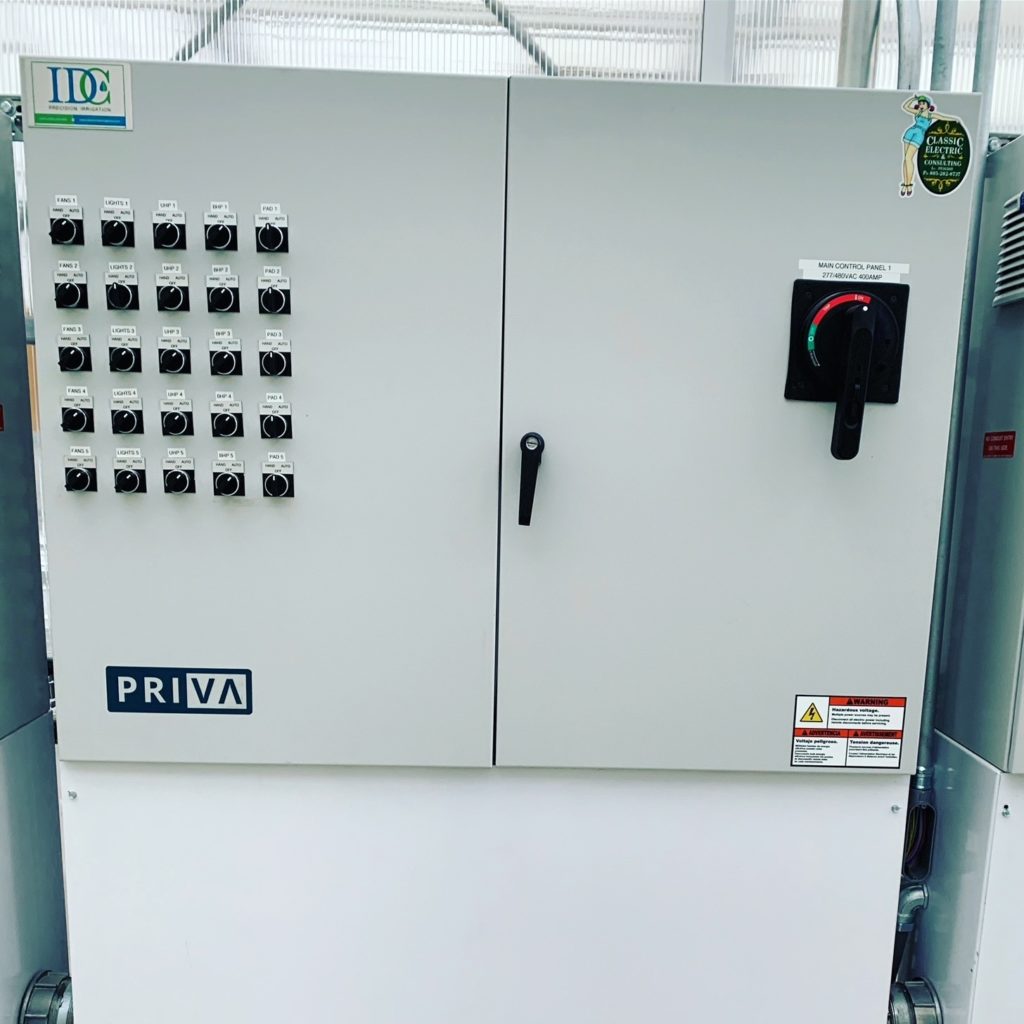As technology in agriculture continues to grow, so do the electrical components within the modern irrigation system. With so many aspects of the irrigation process reliant on an accurately working electrical system, these systems must be dependable. To keep these components working correctly while reducing system downtime, the electrical system should receive regular preventative maintenance checks like any other part of your irrigation system.
Unfortunately, we see the aspect of preventative maintenance overlooked. It is not a big surprise for us to open a panel and find a mess of wires, mislabeled or missing breakers, and a slew of other hazards. For the safety of your equipment and your employees, don’t be that grower! From personal experience, clean, tidy, and well-organized panels and components seem to “work better and break less,” so make your electrical system a priority today.
Water and electricity are not a good combo, yet we pump thousands of gallons of water and drive and control it all with electricity. This is precisely what makes these preventative steps so very important. Irrigation systems have a heightened vulnerability because of their proximity to water, moisture, and exposure to the elements. Due to an irrigation system’s added factors, we recommend electrical irrigation systems be inspected annually due to the added features of exposure.
(*Note: Electricity is dangerous, and maintenance should only be conducted by qualified personnel)

Annual System Inspection
Have a qualified electrician remove your electrical systems’ panel covers entirely and check the panel’s overall “health.” Your electrician should be familiar with all local codes and verify that your system follows all code requirements. There is a wide variety of variables and hazards to look for in panels, so we recommend only qualified personnel conduct this step of preventative maintenance on your system. They will conduct a series of tests, take readings, and ensure all connections are tight and secure. They should have a sound plan and should be able to explain their findings in detail.

So now your panels have been inspected, and your electrician gives you the “all clear,” your good to go for another year – No! Sorry, you’re not off the hook just yet. Qualified electricians are professionals and are very good at what they do, but this article is not for them, it is for you, and there are a few simple things you and your staff can do to help avoid system failures.
Regular Visual Inspections
Visual inspections should be conducted regularly and require much less training. Your eyes and the personnel’s eyes on your property will be your best tool for preventing electrical system downtime. Encourage your staff to report any possible maintenance issues, and be sure you have a system in place for them to report such occurrences. Avoid the “oh yea, that’s been broken for a while” conversations we have all had, and keep your eyes, literally, on the prize.
Below are a few basic guidelines for conducting visual inspections on your electrical system. These may not apply to all but are a good starting point for raised awareness.

Panels / subpanels:
- Inspect cover – should close securely and stay in place. If the panel is exposed to the elements, it should also have a water-tight seal.
- Look for loose or frayed wires.
- Look for discoloration. Discolored or charred wires or surfaces reveal overheating.
- All Breakers/disconnects should be labeled clearly and legibly.
- You should also never smell a burning smell from your panels. This is a problem and should immediately be addressed.
Exterior outlets, boxes, nodes, etc.
- These should have water-tight covers.
- All box penetrations should have water-tight grommets gaskets in working order. Dried, cracked, brittle rubber or plastic should be replaced.
- Screen displays, indication lights should all be visible and in working order.
- Label where possible, and as much as possible.
Sub terrain junction boxes-
- The cover should be in working order and should fit securely in place.
- Clear of debris and critters
- Should not fill with water, ensure adequate draining is in place.
- All wire connections should be water-tight and sealed from elements.
- Inspect any connections for corrosion. Corroded connections should be repaired with water-tight connections.
- Label where possible, and as much as possible
Exterior Sensors/Controls:
- Inspect connections, should not be corroded, and should be sealed water-tight.
- Wires should be shielded from contact with the elements as well. Inspect exposed wires for wear and tear as heat and cold can damage the shielding of wires.
- Conduits should be raised, and access points should have water-tight gaskets in place.
- Loose, extra wire is sometimes unavoidable to secure this wire using zip ties or other fasteners to avoid injury or damage to the equipment.
You may have noticed labels were mentioned a few times on the checklist, and for a significant reason, they save time. When you have a system failure, and you will, the quicker you can locate necessary emergency shut-offs, the safer your equipment and the people working around it will be. We recommend labeling as much as possible. Again they are simply time savers. We understand that all would not be reasonable with the number of wires involved in a complicated system labeling. Still, labeling essential components and keeping panels, sub-panels clean and tidy prevents downtime significantly in emergency and troubleshooting situations.


The complexity of the electrical system within a modern irrigation system can be intimidating, but don’t let that be a reason to overlook the necessary preventative measures the system requires. Add Electrical system checks to your maintenance schedule, schedule electrician visits, and educate yourself and your staff on the importance of regular visual inspections. Keep your systems clean, organized, and labeled. Your system’s health and longevity will be reliant on you. With a bit of planning, and work, and a few pairs of extra eyes, your system can and will be more efficient and suffer less downtime. Good luck!






One Response
It’s interesting to know about irrigation systems and how to keep their electrical components in good shape. My wife and I decided to move to her family’s countryside house and start a farming business there, so we’re eager to understand irrigation systems better, and your article will help us with that. We’re grateful for your advice on how preventive maintenance it’s a must for irrigation systems since they’re very close to water.